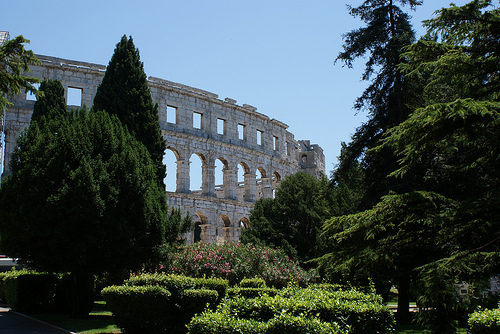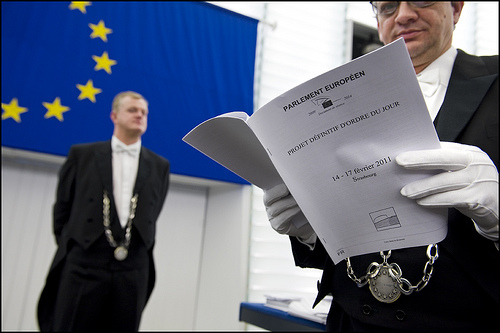Croatia is the newest country to join the European Union (EU), which it did on 1 July, 2013. But investors still need to be careful where they tread. Croatia is full of history, but as it enters a new chapter, investors will find themselves surrounded by minefields if they do not stay on their guard.
Some say Croatia may have missed a chance to implement reforms that would make it the automatic choice for foreign investment in the region. Some of the dangers an investor must be prepared for, and tread carefully to avoid, are corruption, the rule of law and issues around investor protection. But the rewards for investing in the EU’s newest nation could be significant, with a wealth of opportunities in such sectors as tourism and manufacturing.
Tourism contributed €4.6 billion ($6 billion) last year, approximately 12 percent of the country’s GDP, according to the World Travel and Tourism Council – an organisation representing the global tourism industry. Investors wanting to be involved in the sector could be interested in bidding for 15 government-owned holding companies that control sector-related property.
Currently, 11 are being sold through bankruptcy procedure, says Damir Novinic, managing director of the Croatian Agency for Investment and Competitiveness. These are large projects, he warns. They will involve experience with environmental licensing and the Croatian market. However, the agency is keen to hear from new potential investors. Croatia’s new EU membership should help.
“The single market is a benefit. There are no borders, and laws are in accordance with the other territories, so we’re seeing increased interest from investors because of EU membership,” says Novinic.
Manufacturers Test the Water
This extends to other sectors as well. For example, Croatia has extensive experience in manufacturing – particularly car parts and leather-related products. Firms such as Boxmark – an Austrian seat manufacturer – and Saint Jean Industries – a French automotive parts manufacturer – construct components for makes such as BMW, Bentley, Ferrari, Ford and Mercedes in the country.
Not only are firms such as Saint Jean expanding operations, there are further opportunities for investors and businesses that want to get in on the ground level, says Novinic.
“The north of Croatia is the centre for much of the textile, leather and manufacturing industries. It also has lots of good ties with businesses in Europe,” he adds. “But there was a lack of management skills some 20 years ago, meaning some of them got into bad situations. This now provides a good opportunity for investment with much skilled labour in the area.”

But there are issues that firms should pay attention to when considering investing or doing business in Croatia. The country scores fairly low on the World Bank Group and International Monetary Fund’s report on doing business in Croatia. Its overall 2013 Ease of Doing Business Rank, 84th, puts it lower than regional competitors such as Slovakia, Hungary, the Czech Republic and Italy.
The Croatian government has recognised the problem and is working to fix it, says Novinic. It has taken the World Bank’s Ease of Doing Business report as a basic guideline and has set up a working group to address the problems it mentions.
“The members of the working group ask: ‘What needs to be changed? This law? Okay, you’re going to propose the change, you’re in charge and you have two months,'” he says. “It’s a matter of seeing where the bottlenecks are, where the issues are and solving them. None of this existed six months ago.”
But that is precisely part of the problem, argues Natasa Srdoc, co-founder and chairman of the Adriatic Institute for Public Policy, a Croatian think tank.
“The thing is that everybody thought Croatia would be able to do the right thing prior to accession, but that did not happen and many are disappointed in the process,” she adds. “Now those businesses trying to do the right thing, the non-speculative, they’re staying away and waiting for things to change. If that does not speed up, Croatia will miss out on investment and employment opportunities.”
Systemic Issues Are a Challenge
The problems that foreign businesses face are part of larger, systemic issues of corruption, crime, petty bureaucracy and judicial back-logs. These issues existed before Croatia’s ascendency to the EU and should have been more fully addressed during the membership process, says Srdoc.

It is estimated by Global Financial Integrity (GFI), a non-government organisation based in Washington, D.C., that $15.2 billion in illicit funds left Croatia between 2001 and 2010. This places it at 39th in a ranking of countries with the most in illicit financial flows, according to GFI’s 2012 report.
This could have serious implications for a country about to receive significant EU funding for infrastructure projects. “There should be a greater push and pressure from EU institutions to find out what happened to the money and attempt to recover some of it,” says Srdoc. “It is almost equal to the amount that Croatia will be receiving from the EU.”
The funding will provide a wide range of investment opportunities. For example, the country wants to improve irrigation, railway connections and sewer systems as well as build bridges, she adds. But investors should ensure due diligence on any project bid for. Previous projects, such as the Peljesac bridge, closed due to lack of funds amidst accusations from some, including the Croatian construction firm that won the bid, IGH, of having too close a relationship with the government of the time.
The bridge, which was to provide a national land connection between northern and southern Croatia, which are otherwise separated by a strip of the country of Bosnia and Herzegovina as well as the sea, was cancelled in 2012 due to a lack of funds but may be revived with EU funding, she says.
“EU taxpayer funding would probably be the lifeblood of the project and IGH,” Srdoc adds.
Corruption and misuse of power have also been levelled as accusations. The former mayor of Zadar, Bozidar Kalmeta, has been accused of declaring more than 50 landowners to be “absent and of an unknown address”. The land was taken, sold and developed without the owners’ involvement.
Kalmeta denies the allegations, and owners are still attempting to negotiate a settlement but it is an example of problems an investor could face due to lax investor protection and property rights in the country, says Srdoc.
The problems are not helped by the country’s judicial backlog, says Srdoc. According to a US State Department report, “842,750 unresolved civil and criminal cases remained before the courts as of September 30” last year. A number of these are property rights cases with some forming part of the legacy of regional conflict in the area, says Srdoc. It is something investors should pay close attention to, she warns.
“There are properties that should have been restituted to their original owners, and because of the backlog many prime locations for development are being held in uncertainty, reducing potential growth,” she says. In some cases land has been set for development, investors have come in and progress has been halted due to appeals – leaving the investor out of pocket, she adds.
According to the Global Property Guide, a resource for property investors, Croatia scores 40 out of 100 on the Property Rights Index, a subcomponent of the Index of Economic Freedom where 100 represents the best protection of property rights. Neighbours, such as Slovakia and Italy, score 50 while other European nations, such as Germany and Austria, score 90 in comparison.
Signs of Progress Abound
Meanwhile, the World Bank ranks Croatia 139 out of 185 for investor protection – compared to the regional average of 62.
But, despite the problems, the overall situation may be improving. Croatia’s Distance to Frontier – a measurement to show how far, on average, a country is from the best performance achieved by any economy on a World Bank indictor – has improved since 2005, showing that the country has made some progress in improving its regulatory and business environment.

Croatia passed an investment incentive law in 2012 giving it an attractive array of incentives for foreign businesses. and it is in the final stages of completing a new law to speed up procedures for projects of strategic interest – those that have significant impact on the local community and employment, says Novinic.
In the last year, the government has also changed 60 points of legislation in order to make it easier for businesses to operate. The Agency also helps foreign investors on a case-by-case basis and has solved half of the problems brought to its attention since it was created nine months ago, he adds.
“Overall the situation is changing. EU membership has given a fresh look to Croatia as compared to some of our neighbours,” says Novinic. “Even for some companies that have previously considered Croatia and thought it didn’t look good, what the government has done in the last year has changed the situation.”
As the country continues to solidify its position in the EU, reforms could continue. There are opportunities. It is a matter of due diligence to ensure nothing goes wrong.
Rob Denman is editor in chief and CEO of London-based Pathfinder Business (www.pathfinderbuzz.com) and a regular contributor to Site Selection International and Site Selection magazine.
